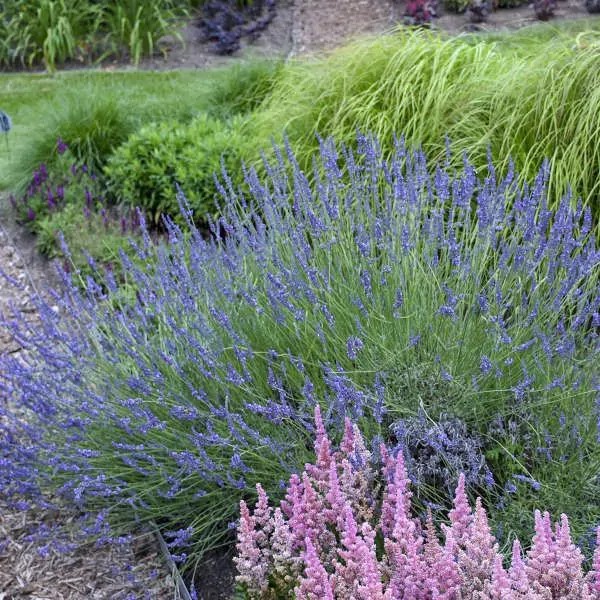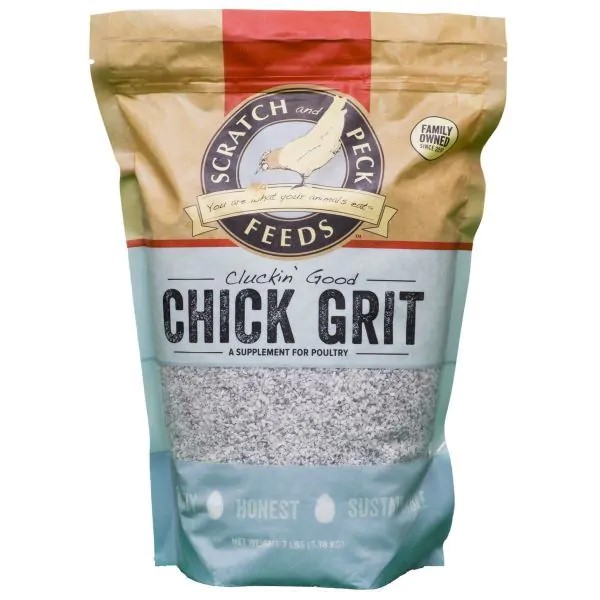Should you fertilize lavender? Garden experts offer advice for this aromatic favorite
Fertilizing herbs is not always necessary and gardeners can sometimes do more harm than good when feeding their plants

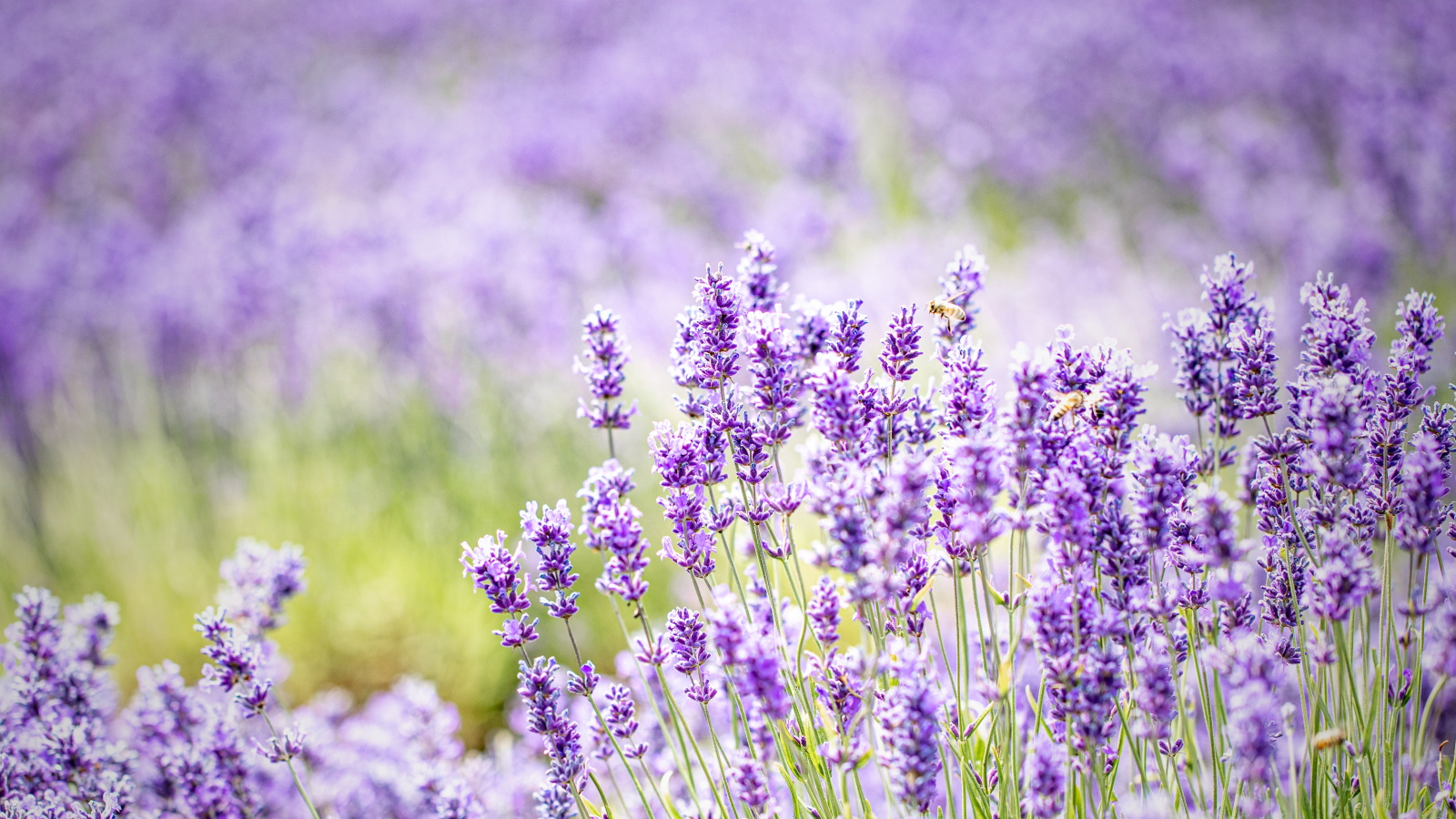
Design expertise in your inbox – from inspiring decorating ideas and beautiful celebrity homes to practical gardening advice and shopping round-ups.
You are now subscribed
Your newsletter sign-up was successful
Want to add more newsletters?

Twice a week
Homes&Gardens
The ultimate interior design resource from the world's leading experts - discover inspiring decorating ideas, color scheming know-how, garden inspiration and shopping expertise.

Once a week
In The Loop from Next In Design
Members of the Next in Design Circle will receive In the Loop, our weekly email filled with trade news, names to know and spotlight moments. Together we’re building a brighter design future.

Twice a week
Cucina
Whether you’re passionate about hosting exquisite dinners, experimenting with culinary trends, or perfecting your kitchen's design with timeless elegance and innovative functionality, this newsletter is here to inspire
As spring and summer rolls on, blooming lavender plants are a common sight in backyard borders and pots. I know of no person, gardener or otherwise, who dislikes this flowering herb. Lavender flowers perfume the air for much of the growing season, and what's more, they are loved by pollinators.
While you may already be confident in terms of how to grow lavender, have you wondered whether or not you should fertilize lavender plants? As with watering lavender, it is good to know the right approach for this cherished herb. Over-watering lavender can damage the plant, and unnecessary fertilizing is much the same. Often, when gardeners think they are tending and nurturing their prized plants, too much love and attention can be a bad thing.
Here, experts share advice on whether or not aromatic herbs, like lavender, need fertilizer during the growing season. So, before you grab the plant food container and reach for the watering can, take a moment to consider if feeding lavender is necessary.
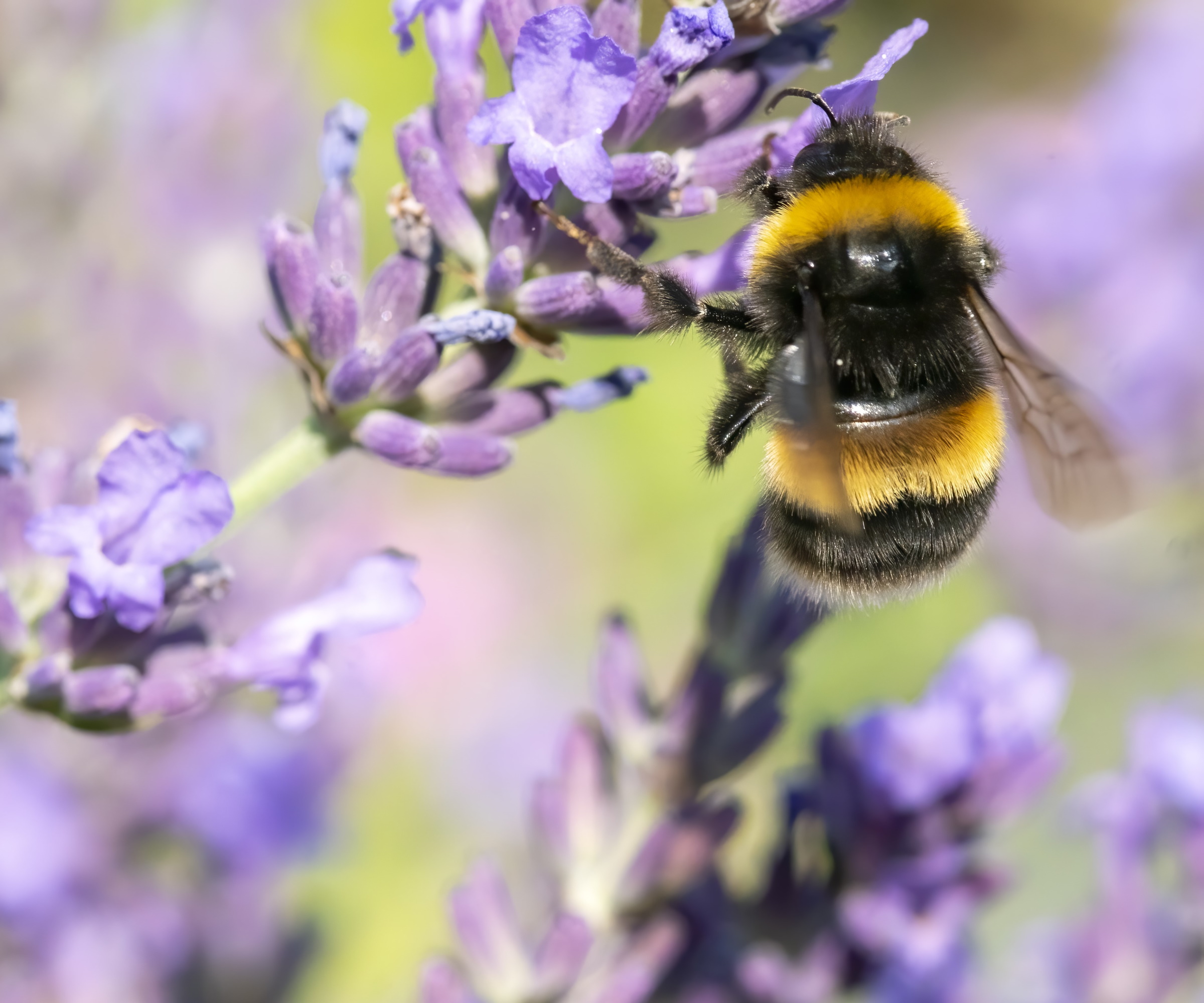
Should you fertilize lavender?
Lavender plants are herb favorites in the garden. Bees, butterflies and birds adore their blooms just as much as we do, and many of the best lavender varieties produce fragrant flowers that are hard to beat in the herb garden.
To keep lavender plants looking their best, many gardeners ponder the question: should I fertilize lavender? While it might sound like a good idea, sometimes feeding plants can do more harm than good.
Should you fertilize lavender plants in the ground?
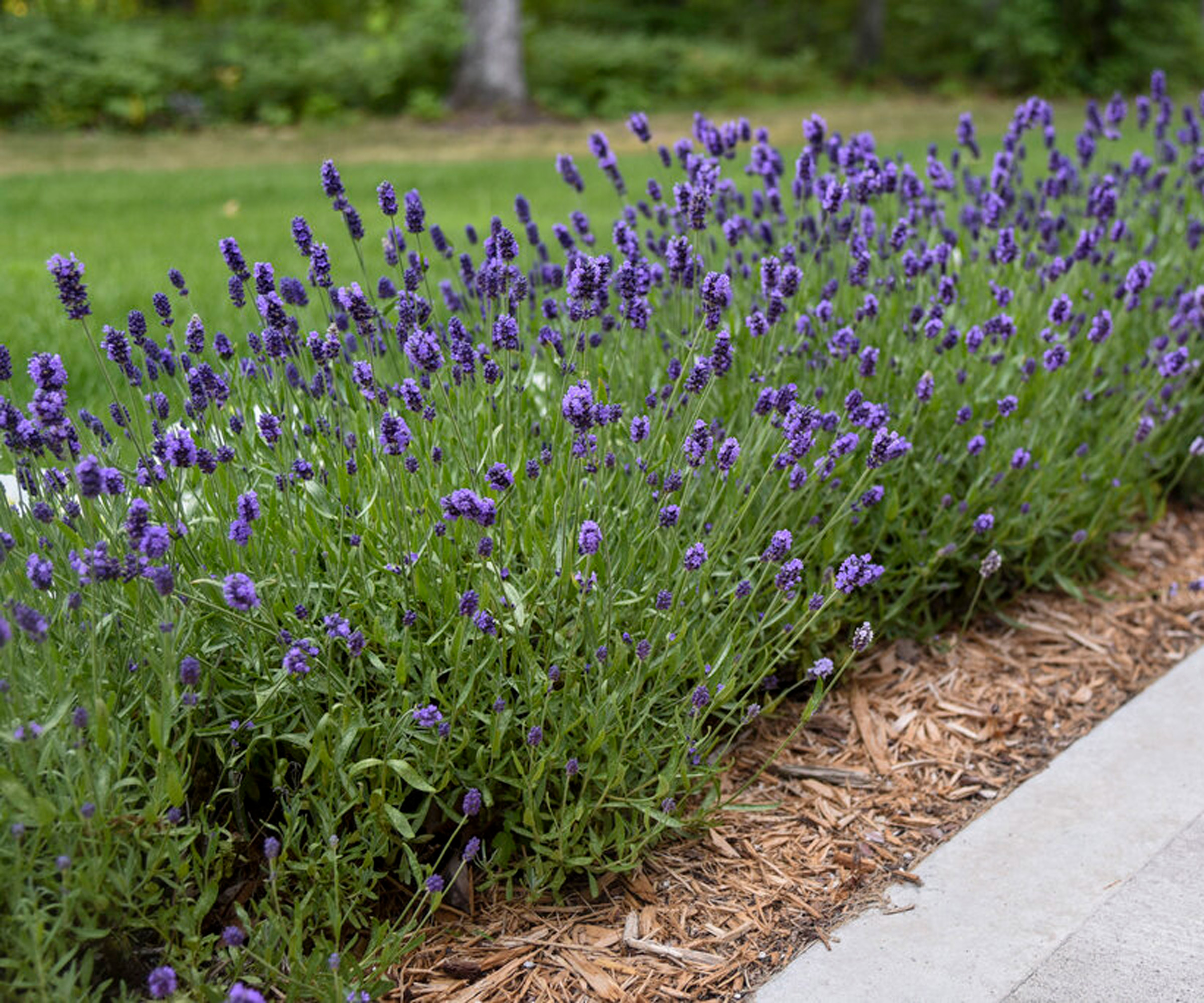
'Slow-growing herbs like lavender, rosemary and thyme do not tend to need feeding,' says Gail Pabst, gardening expert and Marketing Director for the National Garden Bureau.
Considered one of the best drought-tolerant herbs, lavender typically grows in dry, arid regions of the Mediterranean, thriving in nutrient-poor soils that lack minerals and moisture. For this reason, lavender can grow just fine in the backyard without feeding. 'They do great with no fertilizer at all,' Gail adds.
Design expertise in your inbox – from inspiring decorating ideas and beautiful celebrity homes to practical gardening advice and shopping round-ups.
Indeed, understanding where plants come from can be helpful when discerning how to care for them. 'This knowledge can provide gardeners with valuable guidelines for preparing the garden soil and watering,' says Susan Betz, herb expert and Honorary Master Gardener. 'To make your herbs feel at home, try to replicate their natural environment as closely as possible.'
Lavender thrives in well-drained soils with full sun exposure. 'For optimal soil health and growth, you do not need to fertilize. Instead, consider adding a light mulch of coarse sand or pea-sized gravel to the soil beneath the plant on an annual basis,' Susan adds. 'This can improve growth, increase flower and essential oil production, safeguard against diseases, and prevent winter damage from waterlogging.'

Gail is a passionate horticulturist with over 25 years' experience in the industry. She is an avid home gardener too and loves to try out the newest varieties and techniques. Gail is the Marketing Director for the National Garden Bureau and her work has helped her to continue their mission of inspiring, teaching and growing in gardening with others.
Conditioning the soil before planting lavender
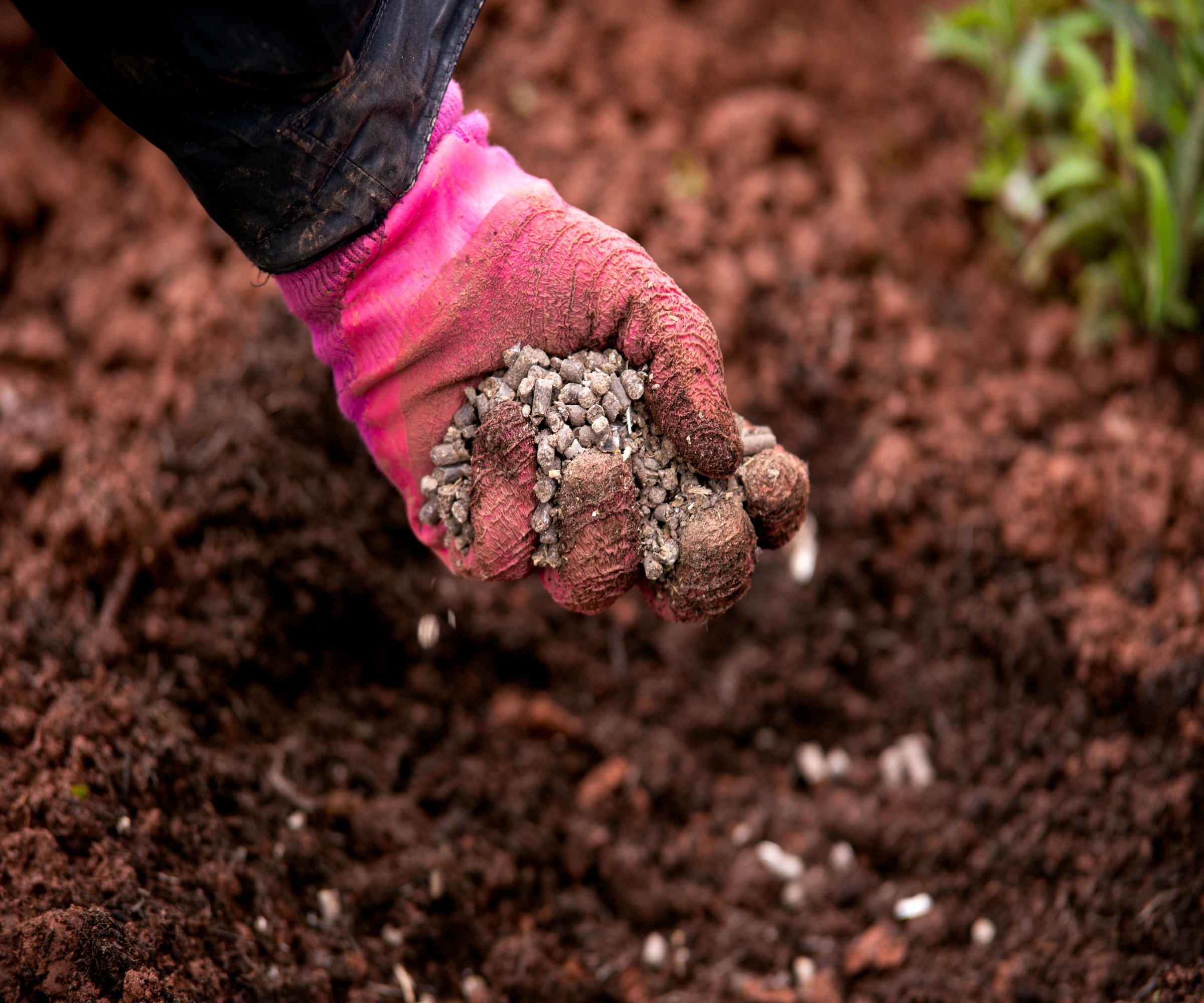
While it is not necessary to fertilize lavender plants once they are established, it can be a good idea to condition the soil before planting, to ensure that your herbs have the best chance to succeed. For gardeners considering flower bed ideas and asking when to plant lavender, this herb can be planted during early to mid-spring, or in the fall.
'Most herbs enjoy alkaline to neutral soil,' Susan continues. If you are unsure about the pH of your soil, consider using something like a soil pH test from Walmart, which will help you assess whether your borders are acidic, alkaline or neutral.
'If your soil is acidic, fear not,' Susan adds. 'Lime can be added to your soil which will help to neutralize the ground and should be applied in the fall, several months before planting your herbs.'
One low-cost option that is widely available is chicken grit. 'This is a cost-effective option and is available in many animal feed stores,' Susan says. 'Importantly, it is an inexpensive way to add a slow-release lime to your soil.'

Susan Betz is an author, garden communicator, lecturer, and conservationist specializing in herbs and native plants. She has been actively growing and using herbs to educate the public about gardening and the natural world for over 35 years. She is an Honorary Master Gardener and a member of the International Herb Association, Garden Communicators, the Ecological Landscape Alliance, and the National Garden Bureau. Susan is a life member of the Herb Society of America.
Should you fertilize lavender plants in pots?
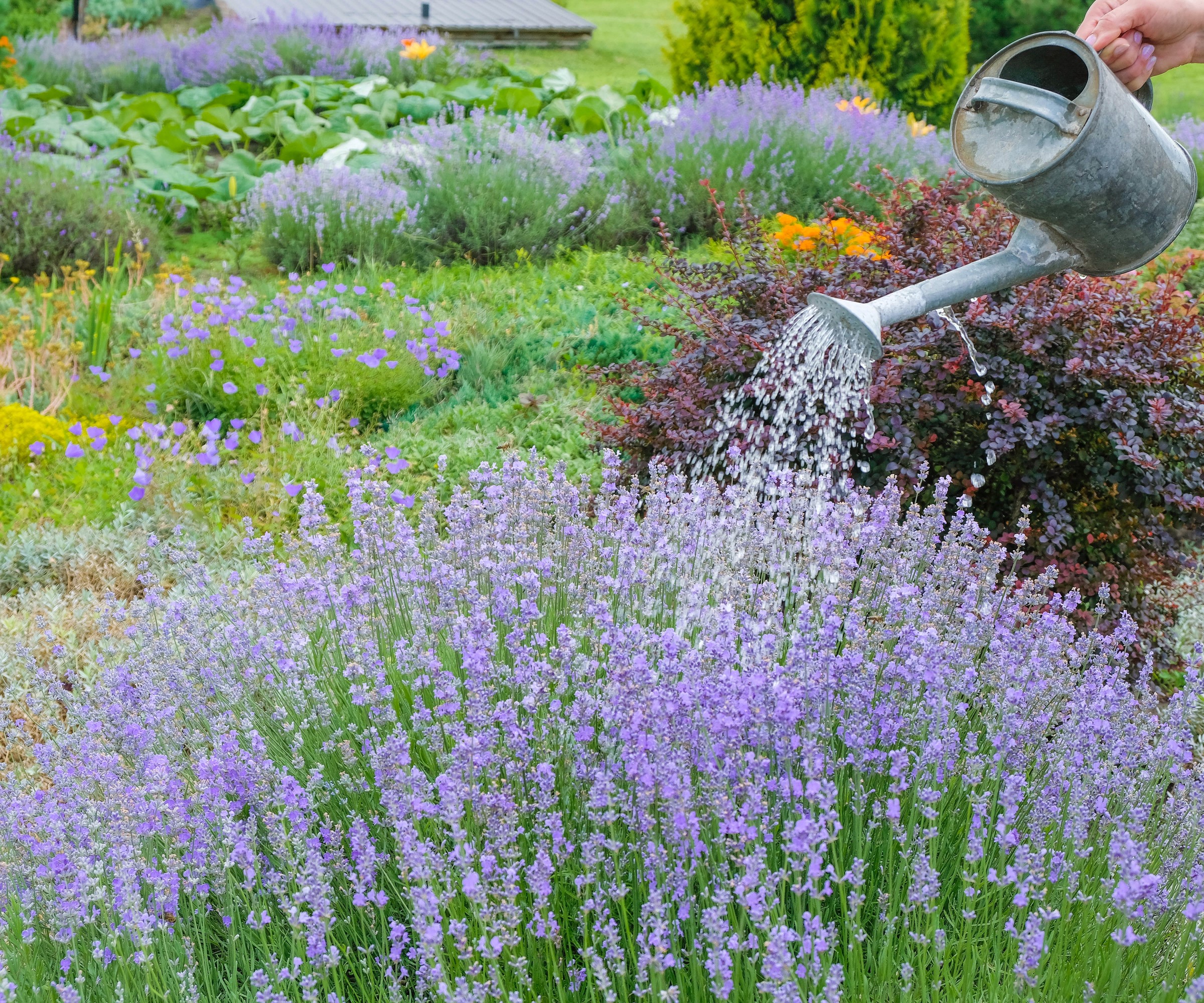
Lavender plants in pots do not need fertilizing. Much the same as lavender plants in the ground, those in pots will thrive on neglect.
When considering how to grow lavender in pots or perhaps you are creating a balcony herb garden, it is important to remember that you do not need to feed your lavender plants, instead, ensure that pots are positioned in a warm, dry environment and receive at least six hours of full sun each day. Positioning your pots in a suitable place will ensure they thrive, without any need to feed them.
When planting in pots, ensure that you incorporate plenty of drainage material, such as sand or grit, to ensure that excess water and nutrients can quickly drain away. Lavender plants will not do well if their roots sit in water.
While many gardeners might consider feeding lavender plants and other herbs as an act of care, it can do more harm than good. Most commercial fertilizers are high in nitrogen, and using this will encourage foliage growth at the expense of flowers.
FAQs
Should I feed lavender plants that do not flower?
No, it is not recommended to fertilize any lavender plant. If your lavender plant did not flower, or only produced a few flowers, consider the position and quality of the soil. Lavender plants grow best in sunny, warm, sheltered positions, and do not like sitting in water.
Lavender plants do not need fertilizing. Instead, they thrive in nutrient-poor and well-draining soils. So, plant your herbs in the correct position, giving them plenty of sunshine, and they will grow without the need for any fertilizer.
If you are considering how best to care for your lavender plants, why not read our guide on reviving woody lavender plants, providing you with all the information to maintain older, woody plants in the backyard.

Thomas is a Content Editor within the Gardens Team at Homes and Gardens. He has worked as a professional gardener for both public spaces and private estates, specializing in productive gardening, growing food and flowers. Trained in Horticulture at the Garden Museum, he has written on gardening and garden history for various publications, including The English Garden, Gardens Illustrated, Hortus, The London Gardener and Bloom. He has co-authored a Lonely Planet travel book, The Tree Atlas, due out in 2024.
